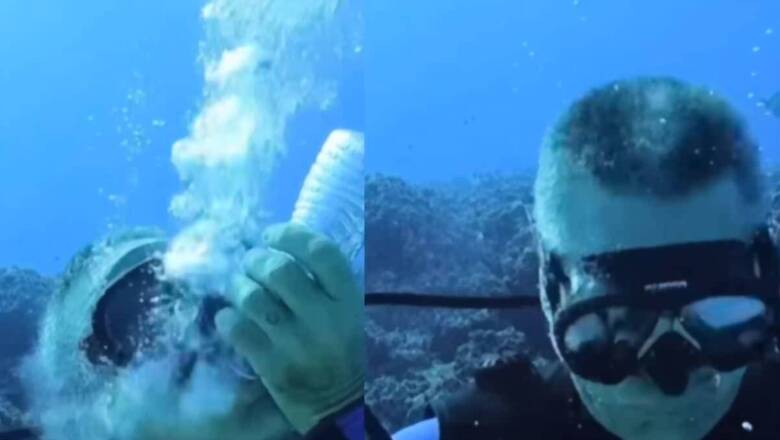
views
Benja Iglesis, a professional scuba diver, has recently posted a spine-chilling video recalling an almost fatal impact of breath-holding amongst divers. Iglesis has a substantial following on his YouTube channel amounting to almost 13,600 subscribers. He has been an underwater photographer since 1989 and teaches what you need to know from his 6000 dives around the world. Originally from Chile, Iglesis has extensive experience and has visited each of the inhabited continents and dived poles, sharing impressive underwater photos and videos. He’s a certified Professional Association of Diving Instructors (PADI) instructor and a certified First Responder Instructor.
In his latest video, Benja Iglesis aims to educate viewers about the critical mistake of holding your breath after inhaling compressed air from your tank. Although this compressed air is used to breathe at these extreme depths by divers, pressure can build up as divers start ascending, turning an otherwise innocent activity into be lethal.
Iglesis states that breathing tanked air is relatively low risk but divers are exposed to inherent risk at greater depths. When the divers are down there, they breathe in air filled with more particles than if they were on the surface. This is quite different from freediving, where divers control their breathing with the aim of diving deep and exhaling before they swim up — the option reduces the likelihood of over-expansion of the lungs.
In a striking demonstration, Iglesis conducted an experiment using a simple plastic bottle to illustrate how pressure changes impact air volume underwater. “We’ve got this little plastic bottle and we fill it up with air at the bottom of the ocean in about 60ft of water. So what’s going to happen is, when you go down, the air compresses," he said.
The bottle noticeably grew larger as he ascended, highlighting the stark contrast in pressure. When Iglesis got to the surface, he uncorked the bottle and the cap flew off. He added, “This is the main reason why you don’t want to hold your breath while diving. You see that? Crazy!"
There is always a risk of barotrauma, burst lungs or air embolism. He noted that just like blowing into a balloon, holding your breath can lead to the pressure building up or rather the lungs expanding similar to a burst balloon. Scuba.com supports this stating that its safety gives way in the process of ascending to possibly fatal impacts.

















Comments
0 comment